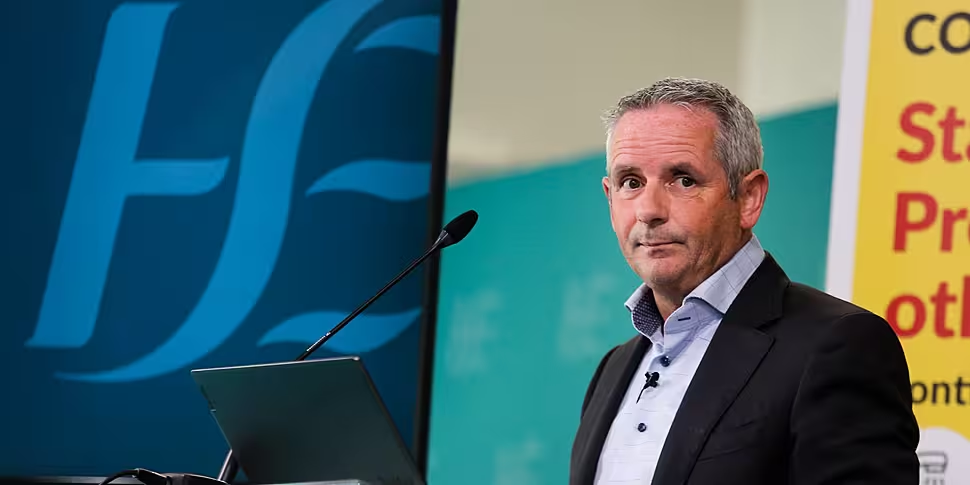There's "no doubt" the HSE will still be dealing COVID-19 during the winter and into next year, CEO Paul Reid has said.
He also said the health service wants to keep some vaccination centres and associated staff in case the booster campaign is extended.
Mr Reid was speaking after a week that saw a decline in case numbers and reductions in the number of patients with the virus in hospital.
As of this morning, there were 315 patients with COVID-19 in Irish hospitals - compared to 362 this day last week.
Meanwhile, over 90% of the adult population is now fully vaccinated.
Mr Reid told On The Record hospital numbers have started “slightly trending downwards”, or at the very least stabilised.
He said they do expect some level of COVID-19 hospitalisations throughout the winter, but they don't expect the number will stay over 300.
He said: “There is no doubt as we look forward into next year and through winter, we in the health service and the HSE are going have to operate on the basis that we will still be dealing with COVID.
“While the economy is moving on and society is moving on - and we all want our lives to move on - the reality for the health service is we still have to manage with COVID and still have to protect patients.
“It is a most likely scenario that we will always have, for a sustainable period of time, numbers of people in hospital with COVID. We have to put those protections in place.”
Mr Reid said the same measures from last winter will be put in place this year, including a ‘dual pathway’ of COVID and non-COVID emergency care.
The health service will also work with private sector in terms of ensuring hospital capacity is available.
Mr Reid said the HSE is “very anxious” to sustain the record funding allocated last year when the next Budget is unveiled next month.
Schools
There has been a surge in demand for COVID-19 testing since children returned to school, with the HSE suspending walk-in testing due to the level of demand.
It's also been estimated that as many as 12,000 children are temporarily out of school as close contacts of someone with the virus.
Mr Reid said there are "disproportionate" levels of the virus among young people, particularly as more and more people in older age groups are vaccinated.
He said: “Over the last week or so... in the 0-18 age category, 45% of our total tests in the community came from that age group - but they’d represent just 20% of the population.”
NPHET is now looking at whether to change the rules around children isolating if they don't have symptoms.
Mr Reid said it's a difficult decision, but the impact of keeping children out of school “where it’s probably unnecessary” does need to be looked at.
No vaccines have yet been approved for children under 12, but Mr Reid says the rollout to adults and teenagers has been a "massive success".
He said: “We are however continuing to focus on trying to sweep up any other adult population that we can, or anyone else entitled to the vaccination. We have a whole range of initiatives going on to address that.”
A limited booster campaign has already been announced for older people, care home residents and immuno-compromised people.
Mr Reid said the plan is to "retain much of our infrastructure" in case that programme is expanded.
However, he said there's also no doubt that "significantly less infrastructure will be in place" than during the rollout of vaccines to the entire population, which saw mass vaccination centres set up in every county.
He also noted that GPs and pharmacies have been heavily involved in the vaccine rollout.









